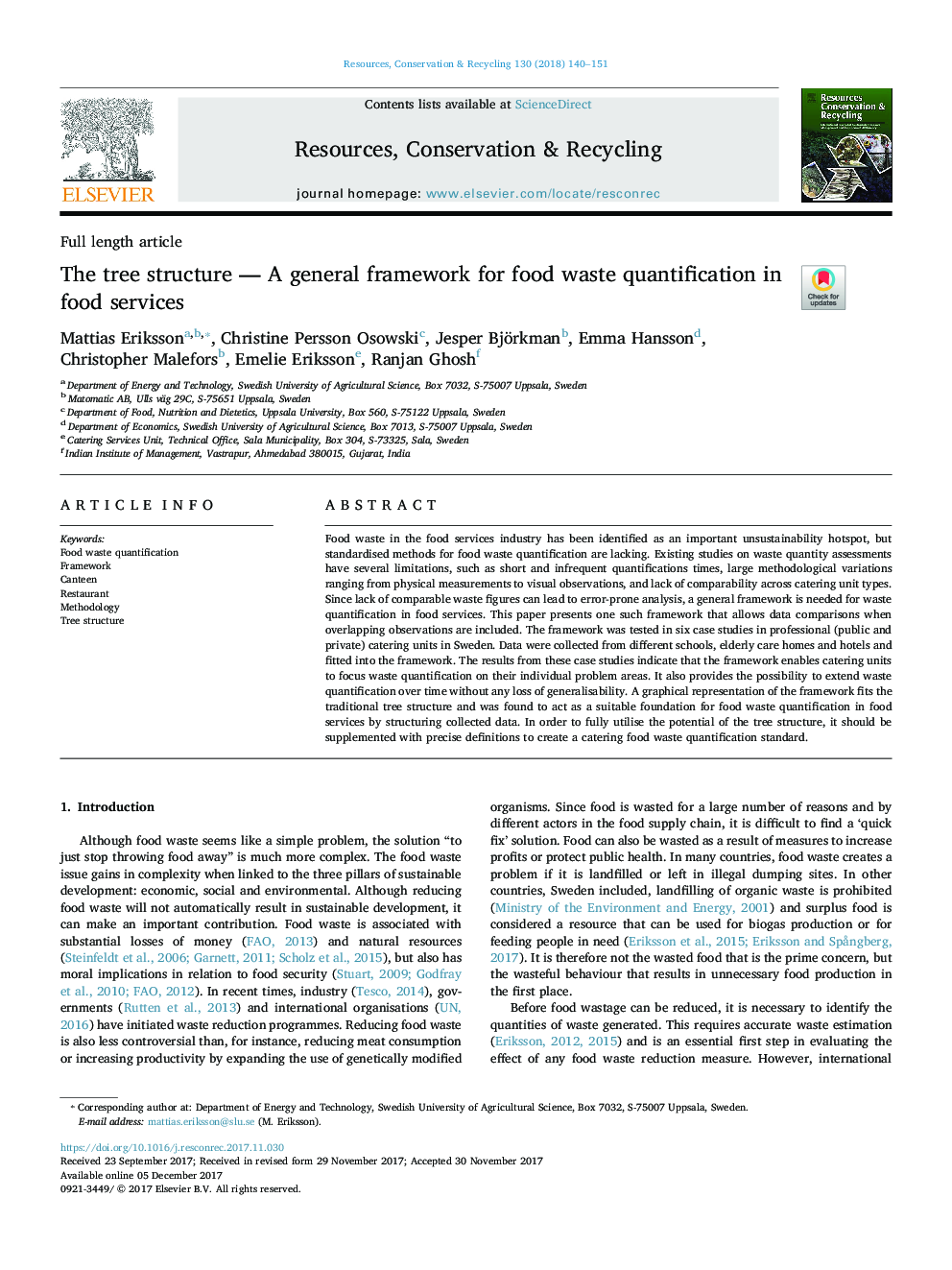| Article ID | Journal | Published Year | Pages | File Type |
|---|---|---|---|---|
| 7494448 | Resources, Conservation and Recycling | 2018 | 12 Pages |
Abstract
Food waste in the food services industry has been identified as an important unsustainability hotspot, but standardised methods for food waste quantification are lacking. Existing studies on waste quantity assessments have several limitations, such as short and infrequent quantifications times, large methodological variations ranging from physical measurements to visual observations, and lack of comparability across catering unit types. Since lack of comparable waste figures can lead to error-prone analysis, a general framework is needed for waste quantification in food services. This paper presents one such framework that allows data comparisons when overlapping observations are included. The framework was tested in six case studies in professional (public and private) catering units in Sweden. Data were collected from different schools, elderly care homes and hotels and fitted into the framework. The results from these case studies indicate that the framework enables catering units to focus waste quantification on their individual problem areas. It also provides the possibility to extend waste quantification over time without any loss of generalisability. A graphical representation of the framework fits the traditional tree structure and was found to act as a suitable foundation for food waste quantification in food services by structuring collected data. In order to fully utilise the potential of the tree structure, it should be supplemented with precise definitions to create a catering food waste quantification standard.
Related Topics
Physical Sciences and Engineering
Energy
Renewable Energy, Sustainability and the Environment
Authors
Mattias Eriksson, Christine Persson Osowski, Jesper Björkman, Emma Hansson, Christopher Malefors, Emelie Eriksson, Ranjan Ghosh,
